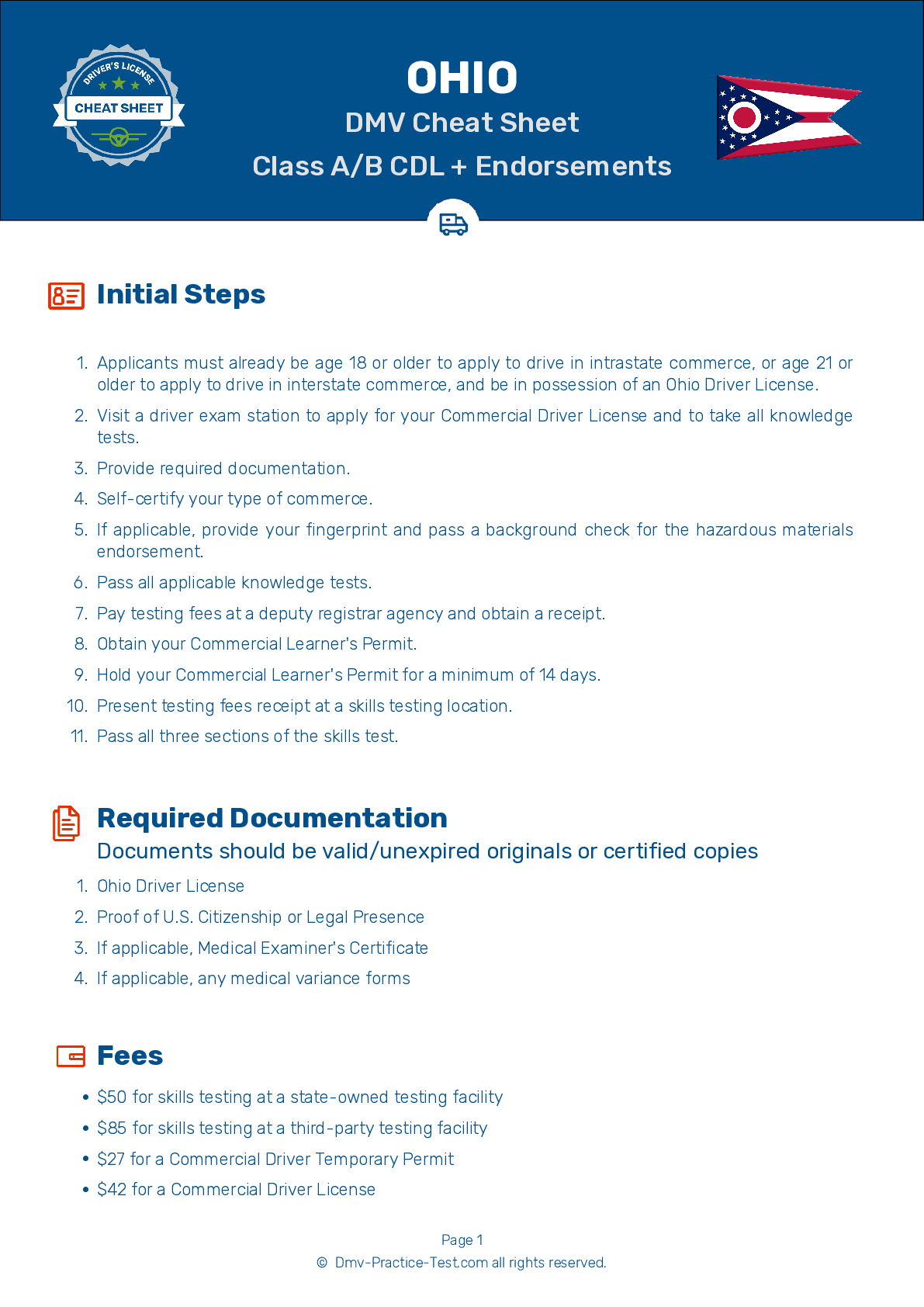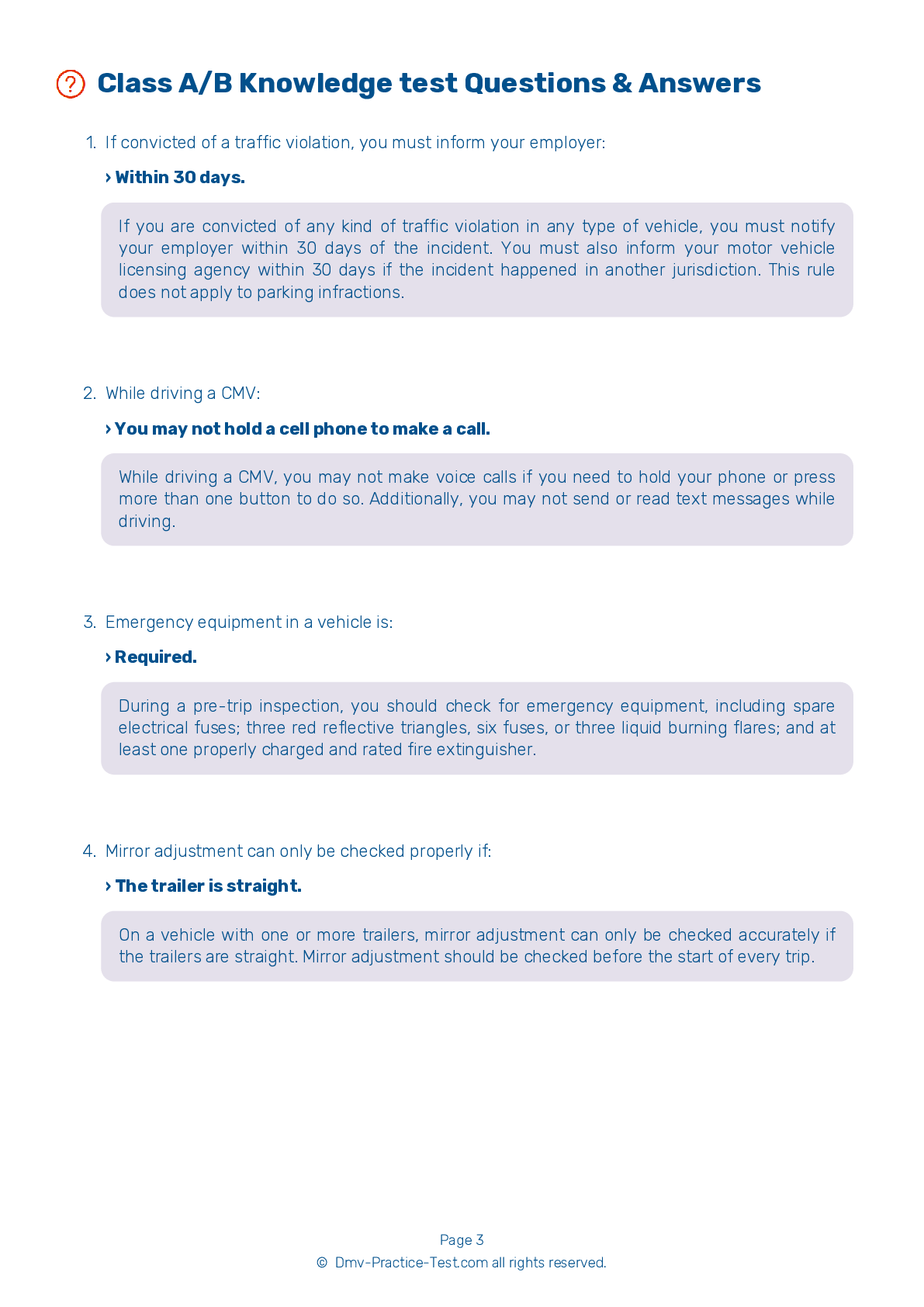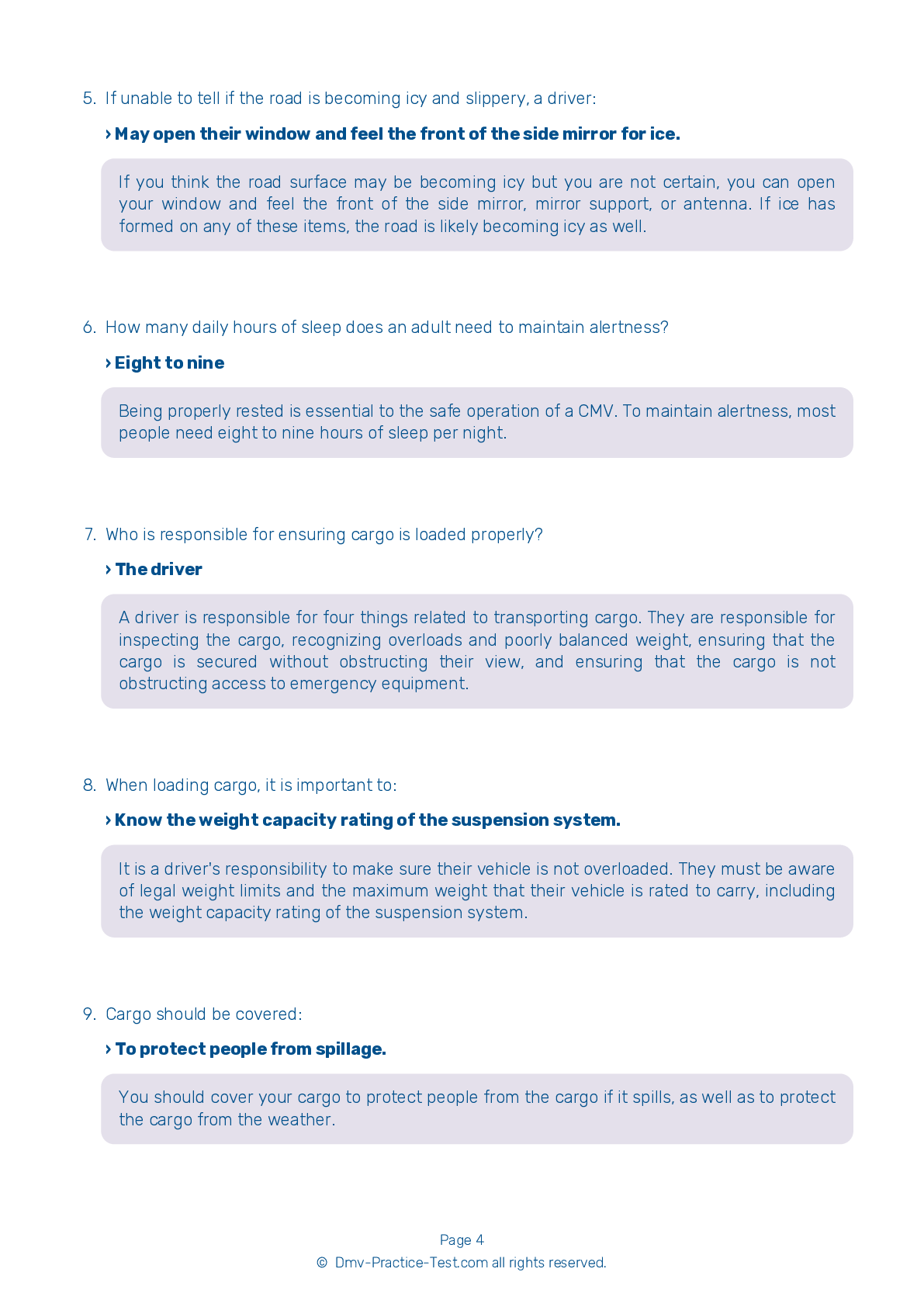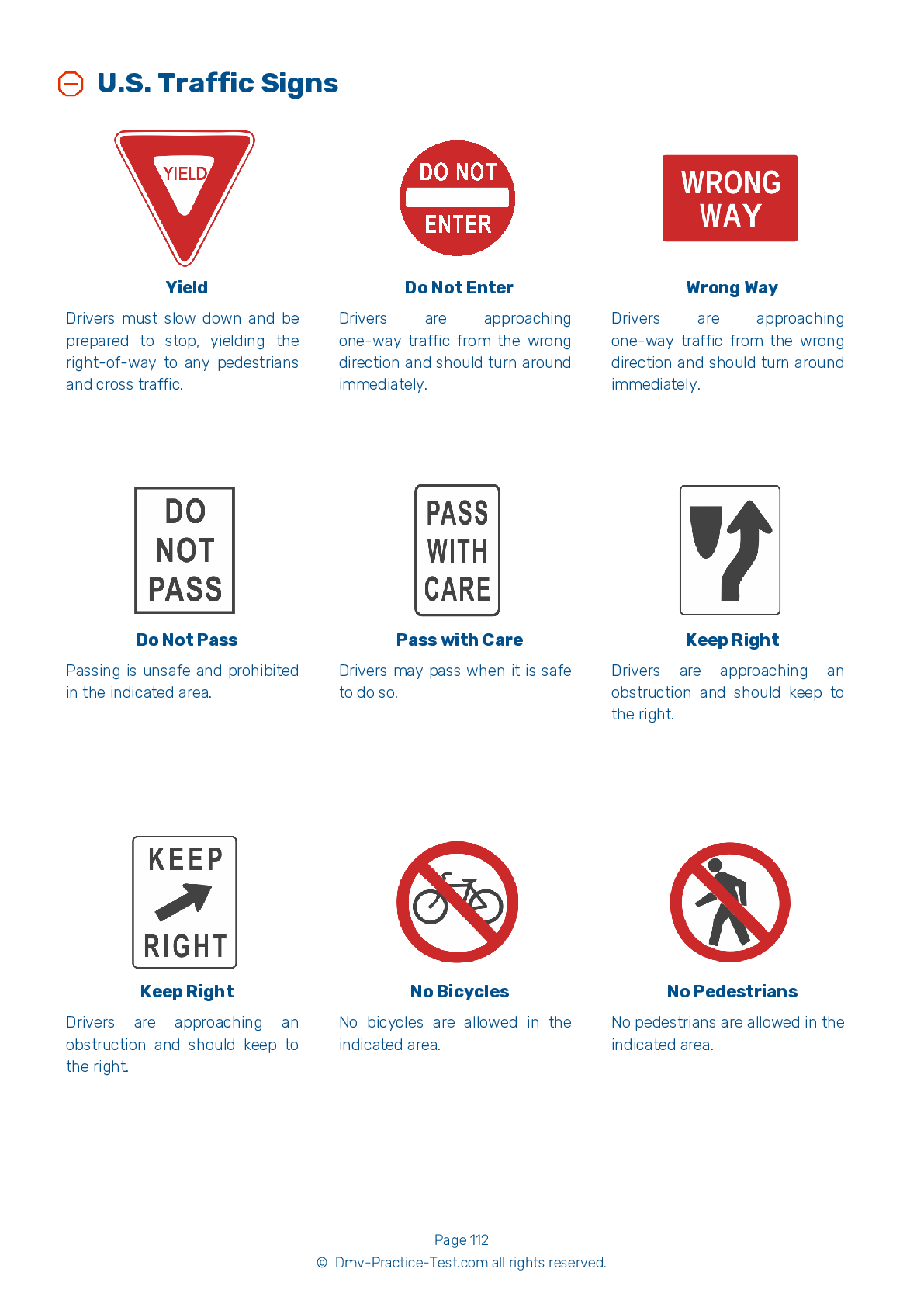Tank #1
Tank Endorsement Test | Ohio 2025 #1
Train for FREE with our Ohio tank endorsement practice test online. The official exam test consists of several obligatory parts, with all of them checking your knowledge of different blocks of road rules. If you need to obtain a OH tank license in 2025, practice as much as possible. Free sample tests published on our website will help you check and improve your knowledge and boost your grades. Please bear in mind that DMV requirements for issuing a CDL tank vehicle endorsement may vary from state to state.
20
16
20
1 . Driving at night is:
Driving at night is more dangerous than driving during the day because hazards become more difficult to see in the dark.
3 . ____ is an example of required emergency equipment.
All commercial motor vehicles are required to be equipped with the proper emergency equipment. This may include spare electrical fuses; three red reflective triangles, six fuses, or three liquid burning flares; and at least one properly charged and rated fire extinguisher.
4 . Roads are especially slippery when it first begins to rain because:
Roads are particularly slippery when it first begins to rain. The water mixes with oil drippings on the road that have not yet washed away, creating a slippery and dangerous mixture.
5 . In general, before loading or unloading any flammable liquids, an engine should be:
Before loading or unloading a tank with flammable liquids, you should turn off the engine, unless running the engine is necessary to operate a pump. Ground the tank before opening the filling hole and maintain the ground until after closing the filling hole.
6 . Which of the following is not a sign of a driver becoming tired?
Potential warning signs of fatigued driving include difficulty focusing; frequent blinking or heavy eyelids; yawning repeatedly or rubbing one's eyes; daydreaming; wandering or disconnected thinking; trouble remembering the last few miles driven; missing exits or traffic signs; having trouble keeping one's head up; drifting from one's lane; following a vehicle too closely; hitting a shoulder rumble strip; and feeling restless or irritable.
7 . An indicator that cargo contains hazardous materials is:
Packaging can be an indicator of whether or not materials are hazardous. Cylinders and drums are often used to hold and transport hazardous materials.
2025 Ohio | Frequently Asked Questions
In Ohio, a Commercial Driver's License (CDL) Class B allows you to operate a single vehicle with a gross vehicle weight rating (GVWR) of 26,001 lbs or more, or tow a vehicle not exceeding 10,000 lbs. It also permits driving buses, farm labor vehicles, and any vehicle not defined in Class A or Class C.
A Class B CDL license in Ohio allows operation of single vehicles with a gross vehicle weight rating of 26,001 lbs or more, or those towing vehicles not exceeding 10,000 lbs. This includes buses, dump trucks, tow trucks, delivery trucks, garbage trucks, and straight trucks. It does not include Class A or Class C vehicles.
To acquire a Class B CDL license in Ohio, you must be at least 18 years old (21 for interstate driving), possess a valid Ohio driver's license, pass a vision test, and complete a written knowledge exam. Additionally, you must pass a skills test which includes a pre-trip inspection, basic controls test, and on-road driving test. Medical examinations may also be required.
In Ohio, you must be at least 18 years old to qualify for a Class B Commercial Driver's License (CDL) for intrastate driving (within Ohio only). However, if you plan to drive interstate (across state lines) or haul hazardous materials, you must be at least 21 years old.
Specific endorsements aren't necessary for a Class B CDL license in Ohio, but they can expand your driving capabilities. Endorsements are available for passenger transport (P), school buses (S), tank vehicles (N), and hazardous materials (H). Each endorsement requires passing additional knowledge and skills tests.
The Class B CDL skills assessment in Ohio includes three parts: a pre-trip vehicle inspection to test your ability to assess if the vehicle is safe to drive, a basic controls test to evaluate your ability to control the vehicle, and an on-road driving test to assess your skills in traffic situations, including left and right turns, intersections, railway crossings and more.
Yes, there are limitations for Class B CDL license holders in Ohio. They are allowed to operate single vehicles with a gross vehicle weight rating of 26,001 lbs or more, or any such vehicle towing another not exceeding 10,000 lbs. However, they cannot legally operate a Class A combination vehicle. For some vehicles like school buses or tank trucks, special endorsements are required.
In Ohio, the written Class B CDL test is primarily offered in English. However, some locations may offer the test in other languages. It's recommended to contact your local Ohio Bureau of Motor Vehicles (BMV) for specific information on language availability. Note that federal regulations require all CDL holders to read and speak English sufficiently to converse with the general public, understand highway traffic signs and signals, respond to official inquiries, and make entries on reports and records.
Yes, you can request accommodations for the Class B CDL written exam if you have a disability. The Ohio Bureau of Motor Vehicles (BMV) provides reasonable testing accommodations in compliance with the Americans with Disabilities Act (ADA). However, you need to make this request in advance and provide documentation of your disability. Contact your local BMV for specific procedures on requesting accommodations.
Yes, if you fail the Class B CDL written test in Ohio, you can retake it. However, you must wait at least 24 hours before retesting. There is no limit to the number of times you can retake the test, but a retesting fee applies each time. It's advisable to study thoroughly to increase your chances of passing on the next attempt.



